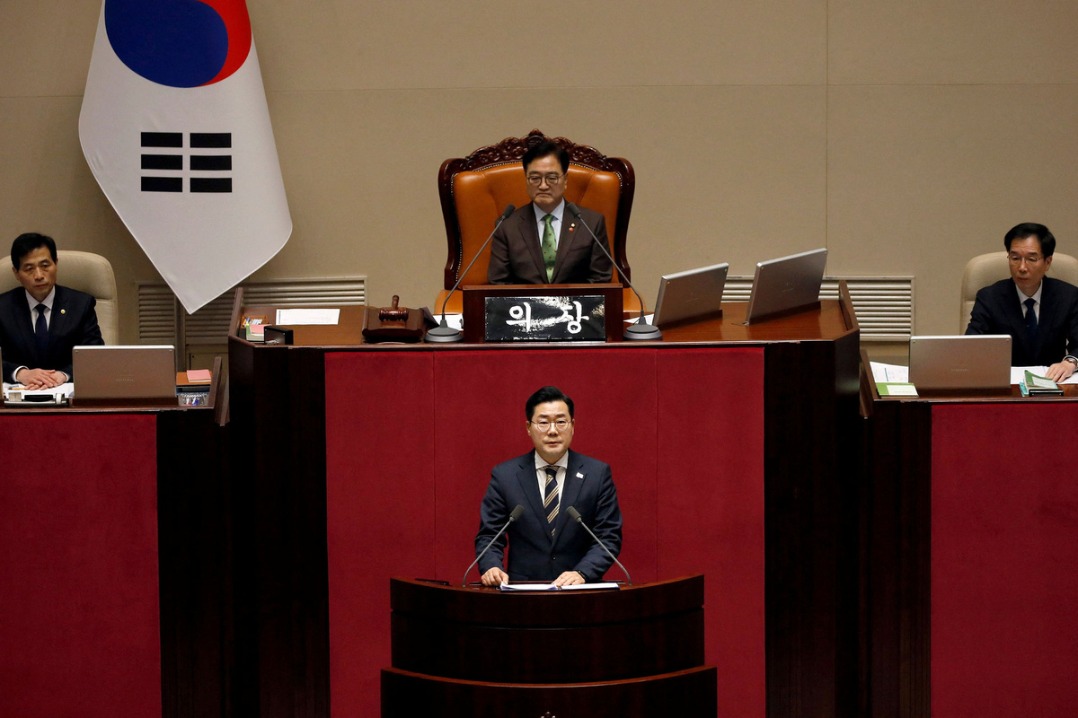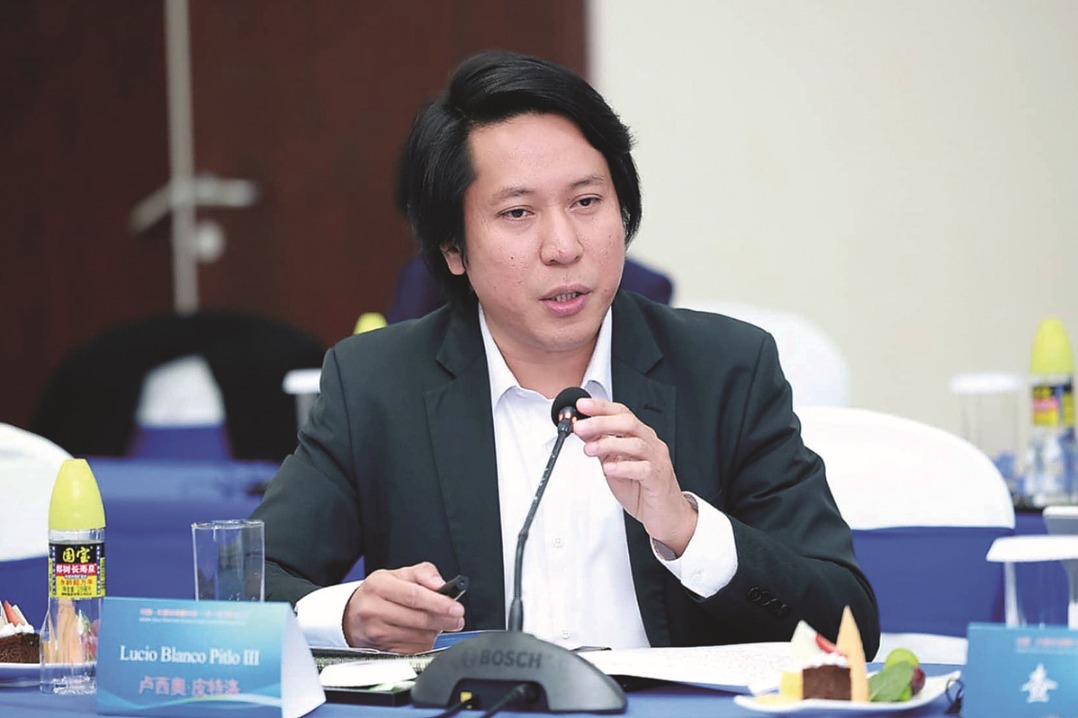Chinese tea event proves platform for dialogue


More than 80 representatives from Chinese and British political and business communities attended an event showcasing Chinese tea culture in London on Thursday.

Addressing the event, the organizer, Chairman of the UK Hainan Culture and Chamber, Zhang Yuxia, said tea culture, as one of the oldest and most characteristic symbols of both Chinese and British culture, can act as a bridge to forge exchanges between China and the United Kingdom.

Liu Hongmei, counselor of the Chinese Embassy in the UK, said many events recently sought to improve economic collaboration and cultural communications between China and the UK, adding that she hoped more benefits could come through such dialogues.
The practice of drinking tea has a long history in China, having originated during the Tang Dynasty (618-907). Since then, tea is deeply woven into the history and culture of China, with some of the most notable categories, such as Pu'er tea from Southwest China's Yunnan province and Longjing tea from East China's Zhejiang province, being appreciated by tea lovers around the world.
In the UK, tea is also a common drink among all classes. Since the 18th century, the country has been one of the world's largest tea consumers. Afternoon tea, which usually indicated a special occasion, with savory snacks and sweet pastries, is a prominent feature of British culture and society.
While brewing tea with boiling water is the drinking habit of Chinese people, the British usually serve tea with milk.
"I hope mutual understanding between China and the UK can be improved through this tea culture event. UK Hainan Culture and Chamber will continue to help promote Chinese tea to UK consumers, thus expanding the China-UK corporation on behalf of trade and investment," said Zhang.

Tea from Southwest China's Yunnan province was featured at the event. Yunnan has long been identified as the birthplace of tea, with its Pu'er tea being classified as one of the greatest Chinese tea, said Wan Yanjuan, vice-chairman of the Federation of Returned Overseas Chinese of Yunnan Province.
According to a 2022 report published by Yunnan provincial government, Yunnan's tea industry generated 107 billion yuan ($14.98 billion) in 2021. This year, a plan was released by the Department of Agricultural and Rural Affairs of Yunnan, which said the province's tea planting area will be stabilized at around 500,000 hectares, with an annual production of 500,000 metric tons by 2025.
Wan said Yunnan's location is an obvious advantage as it is the hub for both Silk Road Economic Belt and the 21st Century Maritime Silk Road.
"As the 7th China-South Asia Expo and a world Chinese entrepreneurs conference will soon kick off in Yunnan, I invite you all to visit and invest in Yunnan, thus continuing to promote the trade cooperation between Yunnan and the UK," she said.

Nigel Grant, a British consultant at the UK Hainan Culture and Chamber, said he hoped the Chinese tea event, as another way to introduce China-UK cultures to each other, can be expanded.
"Tea runs through our veins. The very first thing we do in the morning is switch on the kettle and make a cup of tea," Grant said.
"Tea, in the UK, is considered a great pick-me-up, which means it can give you a boost to keep you going. After a half day of work, you want to chill, or when you are not feeling too well, you are tired, then the most common words to hear are, 'I'll make you a nice cup of tea.'"
Zheng Wanyin contributed to this story.


































